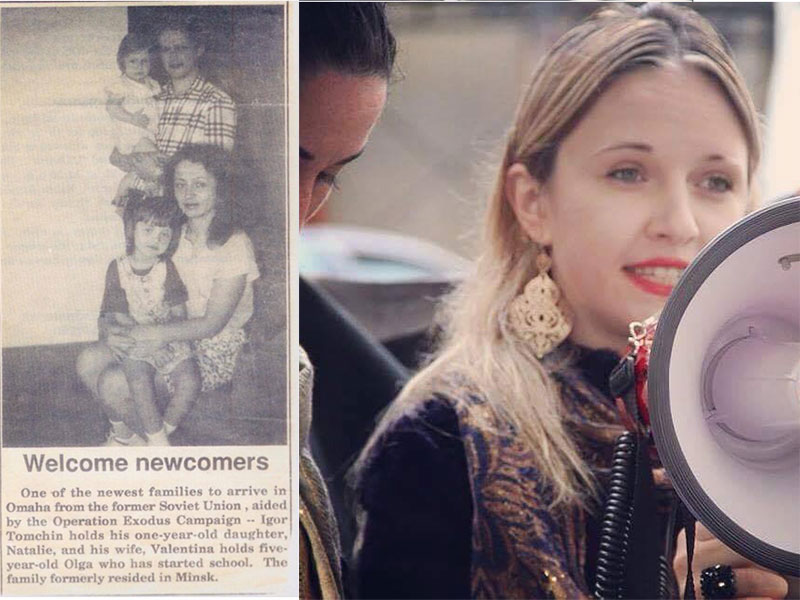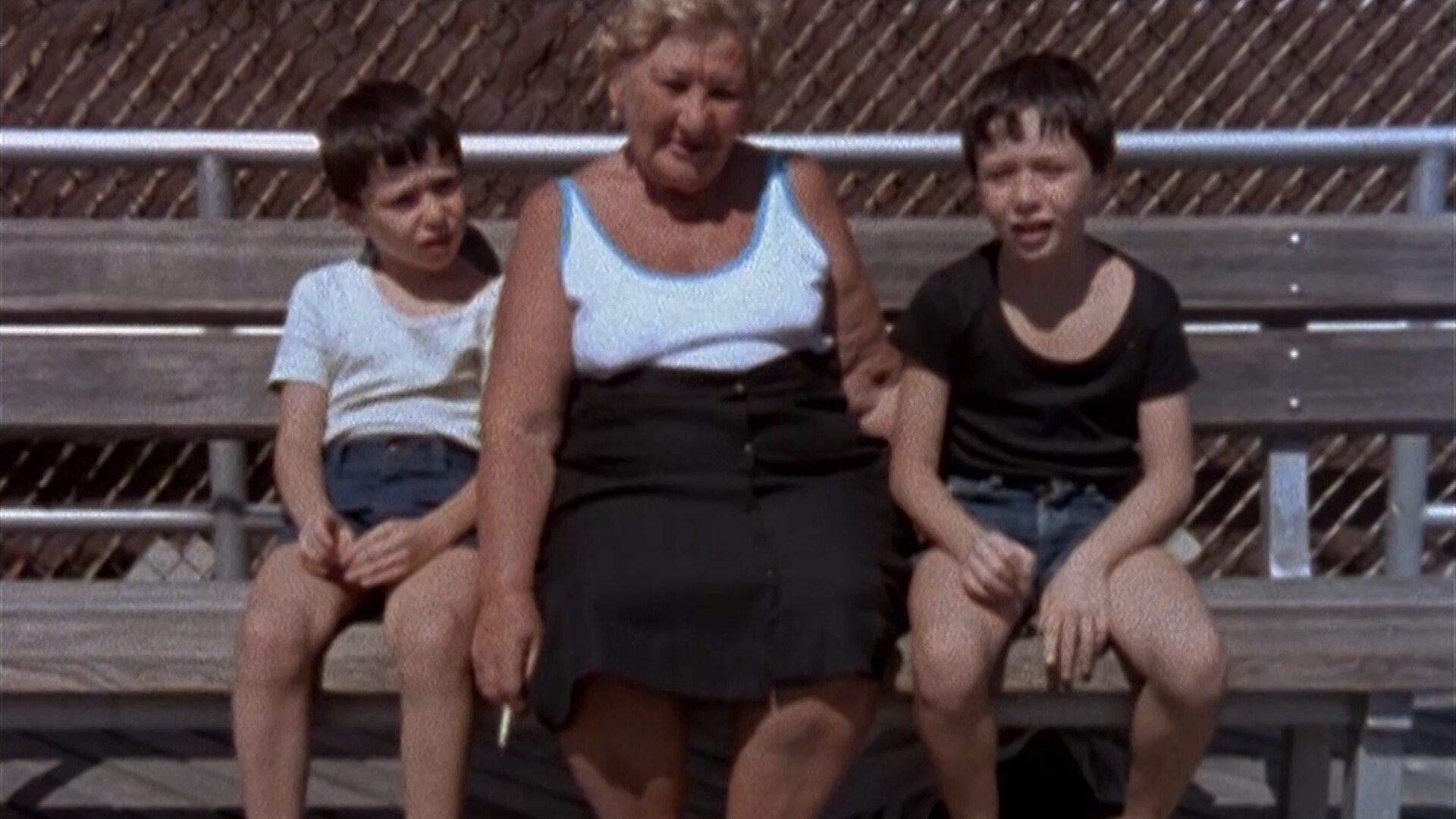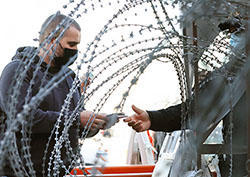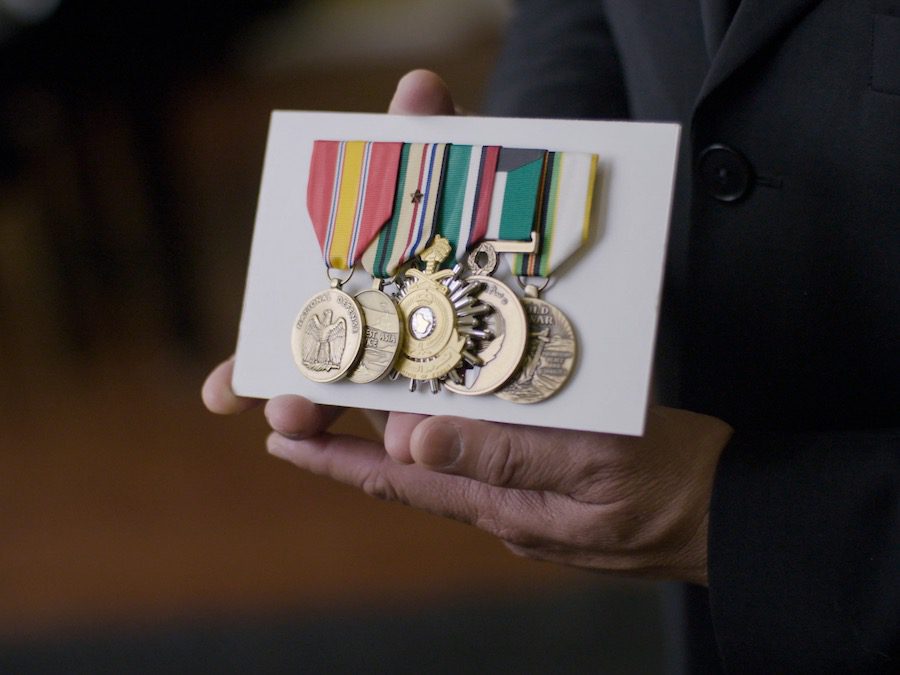Soviet Jews Push Back on Trump’s Executive Order
By Gabe Cahn, HIAS.org
Feb 03, 2017

Olga Tomchin (R), a human rights and immigration attorney in Northern California, alongside a newspaper clipping from shortly after her arrival in the United States in 1993.
(Courtesy: Olga Tomchin)
When the executive order banning refugees was signed by President Trump on January 27, it sent shockwaves through the American Jewish community. But some members of the Jewish community—who still feel defined by their refugee experience—immediately identified with those affected by Trump’s actions.
“Refugee status is not merely a stamp on paper; it's a state of mind and heart which forces one to risk it all for better life,” said Arkady Grinshpun, who was assisted by HIAS and arrived in 1993. “We feel affinity and kinship to those in the same plight.”
Grinshpun, along with more than 1,200 other Soviet Jews who have resettled in the United States, signed on to a letter supporting the U.S. refugee resettlement program and opposing Trump’s policy.
The letter reads in part, “on the basis of our Jewish values and our own experiences as Soviet Jewish refugees, we stand in solidarity with refugees fleeing Syria, Central America, and oppression and death throughout the world.”
Olga Tomchin, a human rights and immigration attorney in Northern California who came to this country at the age of five with her family in 1993, helped organize the effort.
"As a Soviet Jewish refugee, I feel a deep moral duty to pay forward the activism that allowed my family to flee to the United States,” she told HIAS.org.
Julia Bikbova, a former soviet Jewish refugee from Ukraine now practicing law in the Chicago-area, added, “we were given all these opportunities in United States to become who we are today. And therefore, we advocate that the children and families just like ours, be they from Syria or Ukraine, are given the same opportunities that we were given.”
The letter originated on a Facebook group for former soviet refugees and immigrants from Russia, Ukraine and other FSU countries. It has since been signed by several notable figures, including authors Gary Shteyngart and Masha Gessen and singer Regina Spektor.
Part of the group’s message is to demonstrate the integral contributions refugees have gone on to make in our society—becoming doctors, scientists, lawyers, human rights leaders, principals and teachers, CEOs, veterans and artists.
The other part? To testify to the very nature of the refugee experience and the values of an America that welcomed them instead of turning them away.
“I just want to remind people how hard it was,” said Kathy Livschiz, who came to this country as a child in 1989. “Who are we, to deny people fighting for their lives, a chance to make it?”
As for those who may have national security concerns, Marina Trad responded, “we were no more Communist than today's refugees are terrorist.” Trad, who came to America in 1988, added, “people only abandon their homes and lives if their situations are unbearable.”
Vlad Khaykin, a San Francisco-based Jewish professional who also helped get the initiative off the ground, called it a “central imperative” of his faith. For Khaykin and others, the Torah’s commandment to welcome the stranger isn’t an abstract notion, “we really DO know how it feels because we lived it ourselves. Thus, this act of solidarity with other refugees is rooted in deeply personal, lived experience.”
He also cited the groundswell of grassroots activism in the American Jewish community that helped open the doors for Jews coming from the Former Soviet Union—a movement being echoed today.
“For me, it is also a matter of repaying a debt,” Khaykin said.
To stay up to date with this story and others like, follow HIAS on Facebook, Twitter and Instagram.





